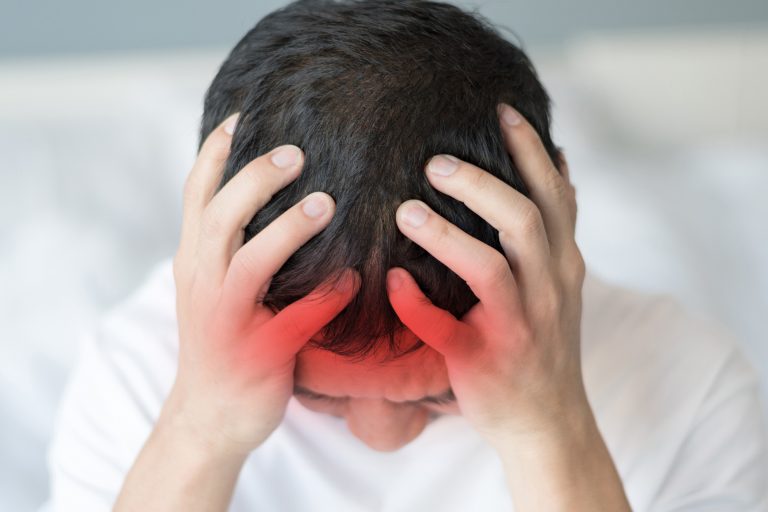Migraine vs. Headache: What’s the Difference
Any type of head pain is irritating and cause for concern. There can be a range of reasons you are experiencing such pain, be it characterised by a dull, slow throb or a sharp, persistent ache. If you are not sure what is causing head pain or are concerned about any associated symptoms, it’s best to seek medical advice immediately.
The terms headache and migraine are often used interchangeably but they actually refer to two different medical conditions. Understanding whether you are suffering from a type of headache or persistent, chronic migraines is the first step in tailoring an appropriate plan to manage your symptoms. This plan might include lifestyle changes, like increasing your level of exercise. Alternatively, if you have been suffering from migraines for a prolonged period of time without relief, your doctor may recommend you try medical cannabis for migraines as a way of managing symptoms.
What is a headache?
The word headache is actually an umbrella term that covers a number of different medical conditions, including migraines. As per the World Health Organisation, headache disorders are amongst the most common nervous conditions in the world. They also tend to be under-diagnosed and under-treated. Headache disorders have a significant impact on a patient’s quality of life but can also severely disrupt society due to time lost by employers and the financial burden placed on our healthcare systems.
The International Headache Society recognises over 150 different types of headaches, meaning it’s important to understand exactly what type you are suffering from. Being able to more accurately diagnose your condition will help find a targeted strategy to manage symptoms.
The World Health Organisation outlines the four main types of headaches as being:
- Migraine
- Tension-type-headache (TTH)
- Cluster headache
- Medication overuse headache
In addition to these, it is fairly common for people to report a headache as a symptom of other conditions. An infection such as meningitis, for example, is often accompanied by a headache.
What is a migraine?
As discussed, a migraine is actually a particular type of headache. The NHS describes a migraine as being “usually a moderate or severe headache felt as a throbbing pain on one side of the head.”
Migraines themselves can also be classified depending on their symptoms. Some patients report experiencing specific warning signs before a migraine attack begins, including flashing lights and a ringing in their ears. This is known as a migraine with aura. Not all patients will have these pre-symptoms; some migraines strike without warning.
The NHS suggests that the exact cause of migraines is unknown. However, it is believed there is some genetic link, as many people who report migraine attacks have a close relative also diagnosed with the condition. There are also certain lifestyle factors that will exacerbate the intensity of a migraine or the frequency of attacks. These can include dehydration, having a poor diet, or stress.
Migraines, as is the case with all headache conditions, can be particularly debilitating. It’s important that you seek medical assistance if you are concerned about your symptoms or are finding that your condition impacts on your daily life. Your doctor may suggest any number of strategies to manage symptoms, including medical cannabis for migraines.
Managing headaches and migraines
Managing any type of headache disorder, including a migraine, first requires a diagnosis by a healthcare professional. They will be able to determine whether there’s a separate cause for your issue — like stress or lack of sleep — or if it’s more likely that you have a migraine disorder. From here, appropriate decisions about managing symptoms can be made.
If you have already received a diagnosis and have been struggling with migraines for quite some time, medical cannabis for migraines could be an appropriate strategy to manage symptoms. Medical cannabis was legalised as an unlicensed medicine in the United Kingdom in 2018 and since then, the medication has been prescribed by approved specialists to help manage a number of different conditions.
While medical cannabis may be used to manage symptoms associated with psychological disorders, including anxiety, ADHD, insomnia, and more, it is also commonly prescribed to patients suffering from chronic pain. Medical cannabis interacts with the endocannabinoid system, which helps regulate various processes in the body, including pain management.
MyAccess Clinics’ team of qualified specialists will be able to fully determine whether medical cannabis for migraines is an appropriate option for you based upon your condition and medical history. To find out more, contact our friendly and experienced team today.

